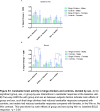Reduced cerebellar brain activity during reward processing in adolescent binge drinkers
- PMID: 26190276
- PMCID: PMC4691369
- DOI: 10.1016/j.dcn.2015.06.004
Reduced cerebellar brain activity during reward processing in adolescent binge drinkers
Abstract
Due to ongoing development, adolescence may be a period of heightened vulnerability to the neurotoxic effects of alcohol. Binge drinking may alter reward-driven behavior and neurocircuitry, thereby increasing risk for escalating alcohol use. Therefore, we compared reward processing in adolescents with and without a history of recent binge drinking. At their baseline study visit, all participants (age=14.86 ± 0.88) were free of heavy alcohol use and completed a modified version of the Wheel of Fortune (WOF) functional magnetic resonance imaging task. Following this visit, 17 youth reported binge drinking on ≥3 occasions within a 90 day period and were matched to 17 youth who remained alcohol and substance-naïve. All participants repeated the WOF task during a second visit (age=16.83 ± 1.22). No significant effects were found in a region of interest analysis of the ventral striatum, but whole-brain analyses showed significant group differences in reward response at the second study visit in the left cerebellum, controlling for baseline visit brain activity (p/α<0.05), which was negatively correlated with mean number of drinks consumed/drinking day in the last 90 days. These findings suggest that binge drinking during adolescence may alter brain activity during reward processing in a dose-dependent manner.
Keywords: Adolescence; Alcohol; Binge; Cerebellum; Reward.
Copyright © 2015 The Authors. Published by Elsevier Ltd.. All rights reserved.
Figures




References
-
- Beck A., Schlagenhauf F., Wustenberg T., Hein J., Kienast T., Kahnt T., Schmack K., Hagele C., Knutson B., Heinz A., Wrase J. Ventral striatal activation during reward anticipation correlates with impulsivity in alcoholics. Biol. Psychiatry. 2009;66:734–742. - PubMed
-
- Bjork J.M., Knutson B., Hommer D.W. Incentive-elicited striatal activation in adolescent children of alcoholics. Addiction. 2008;103:1308–1319. - PubMed
Publication types
MeSH terms
Grants and funding
LinkOut - more resources
Full Text Sources
Other Literature Sources

